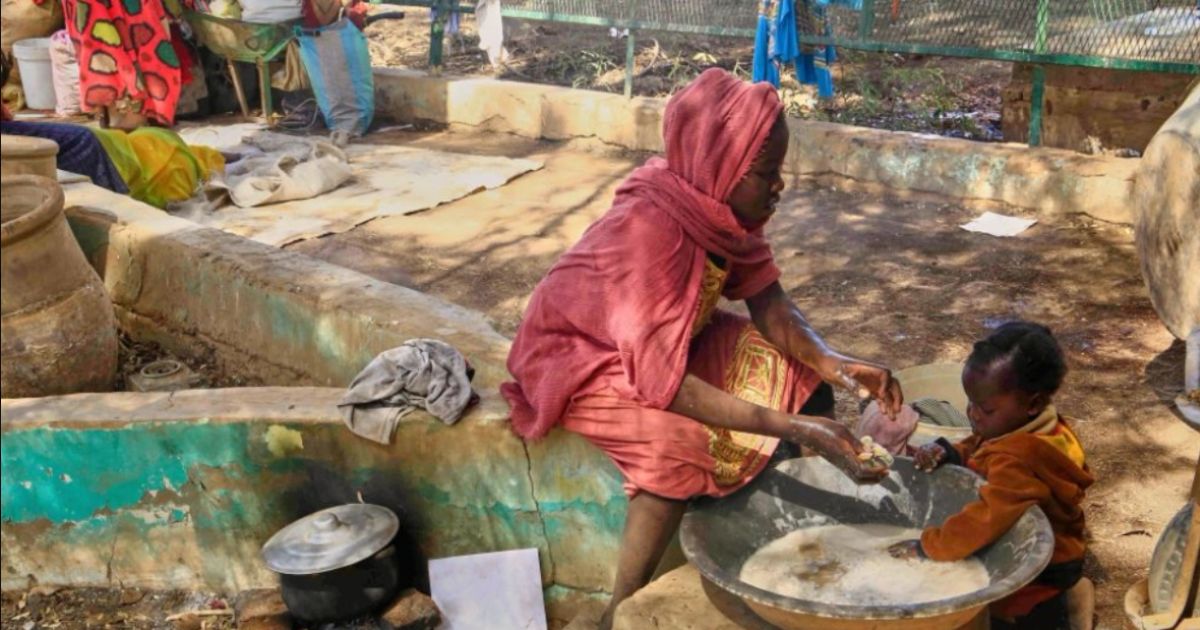At least 91 civilians were killed in Sudan’s beleaguered city of el-Fasher in attacks by the paramilitary group Rapid Support Forces, or RSF, over the course of 10 days last month, the United Nations said on 2nd October.
The chain of attacks was the latest in the intensified conflict between the army and competing paramilitaries vying to dominate the city amid raging civil war.
The conflict between the RSF and the military started in 2023 when tensions boiled over between the two former allies that were tasked with presiding over a democratic transition following a 2019 rebellion.
The conflict has killed a minimum of 40,000, with the World Health Organization stating that at least 12 million others have been displaced. At least 24 million people are suffering acute food insecurity, the World Food Program says.
El-Fasher is the army’s final bastion in the vast Darfur region, which has been the epicenter of violence along with Kordofan.
September attacks
U.N. High Commissioner for Human Rights Volker Türk explained on Thursday that the city’s Daraga Oula district in the west of el-Fasher city has been targeted again and again during RSF artillery attacks, aerial bombardments by drones, and ground assaults from Sept. 19 to 29. The El-Fasher Resistance Committees, an association of locals and activists monitoring the clashes and war crimes-related abuses, also documented the same attacks, it said Wednesday.
Türk demanded immediate action to avert “large-scale, ethnically-motivated attacks and atrocities in el-Fasher.”
On Wednesday, in its new attack on residential areas, the RSF launched a missile that killed 16 individuals, including three women, and wounded 21 individuals, including five children, the Sudan Doctors Network reported, labeling the assaults a “massacre.
The Sudanese military, in a statement, stated that it inflicted losses on the RSF in the city yesterday and “killed a large number of mercenaries from Colombia and Ukraine.” The mercenaries, the army stated, consisted of engineers with expertise in drone systems.
The RSF did not have an immediate comment for The Associated Press.
Wednesday’s el-Fasher attack was preceded by two RSF raids, one that killed 15 in a crowded market and another on a mosque that claimed at least 70 lives.
Residents run
Doctors Without Borders, or MSF, has been seeing patients who escaped the siege in el-Fasher, some 60 kilometers from Tawila, since it closed its offices in the city more than a year ago amid growing violence.
Most come in dehydrated, hungry, wounded or with gunshot injuries, torture and rape, said Mouna Hanebali, MSF Medical Referent Team Leader in Tawila, to The AP Thursday.
The number of patients coming from el-Fasher to MSF’s hospital in Tawila rose by about 60% since the September 25 surge, with 80 patients a day. Between Sept. 25 and Oct. 1 alone, MSF admitted 484 patients, including 111 children, the group said.
“Most of the most badly injured do not make it through the six-day trek from el-Fasher to Tawila,” said Hanebali. “Some internally displaced persons say they have had to bury their kin on the road.”
Trapped civilians and reporters
The RSF blockade of the city has worsened an already desperate humanitarian crisis in el-Fasher because of the absence of basic supplies and denial of access to lifesaving healthcare, aid workers say.
Without access to humanitarian help, those besieged in el-Fasher are left without food, medicine, or treatment,” Hanebali said. “And the sickest of the sick may never survive.”
Limited aid was airdropped by the Sudanese military over el-Fasher at dawn Monday, the first since the conflict in the city began escalating in April, according to Mohanad Elbalal, co-founder of the Khartoum Aid Kitchen. He based this on reports from reporters and aid workers on the ground.
A Wednesday report by the Committee to Protect Journalists outlined accounts from seven journalists subjected to violence, arrest, rape, and starvation.
The journalists said RSF fighters employ informants within the city to assist in identifying media personnel and where they reside. One journalist, who wasn’t identified over concerns of retaliation, said fighters broke into her home and instructed her family to vacate the premises. Then “three armed men beat and gang-raped her.”
“Everybody is scared to work,” said Lana Awad Hassan, a reporter who left the city several months after she was shot in the leg by the RSF. “Even if you produce a good story, you don’t sign it. The RSF and the Sudanese army target journalists, but that doesn’t deter us.”
Egypt, Sudan’s neighbor, stated Wednesday that its foreign minister, Badr Abdelatty, received Sudan’s attempts to break the siege of el-Fasher in a meeting with his Sudanese counterpart Mohi el-Din Salem, as reported by Cairo’s foreign ministry in a statement. The statement did not provide any additional information regarding those efforts.




